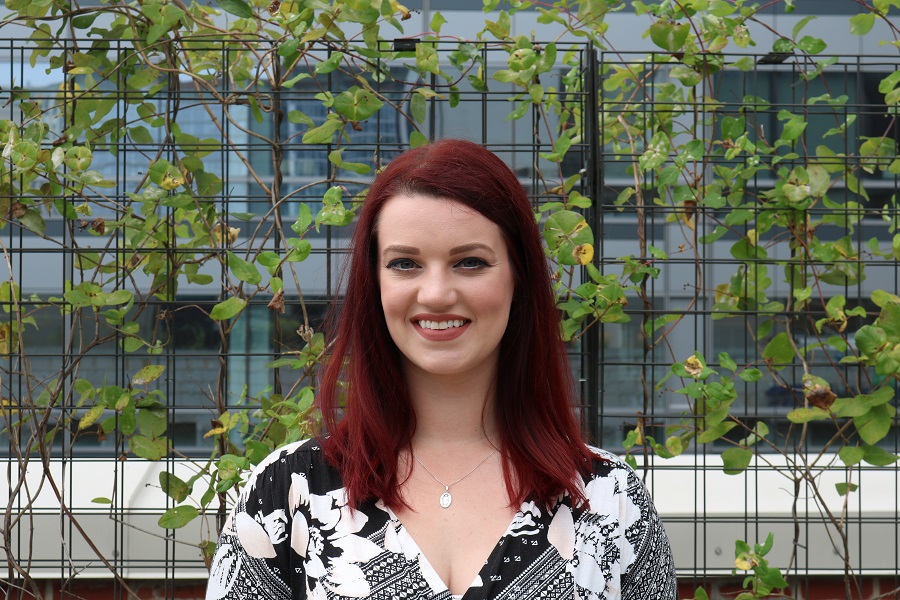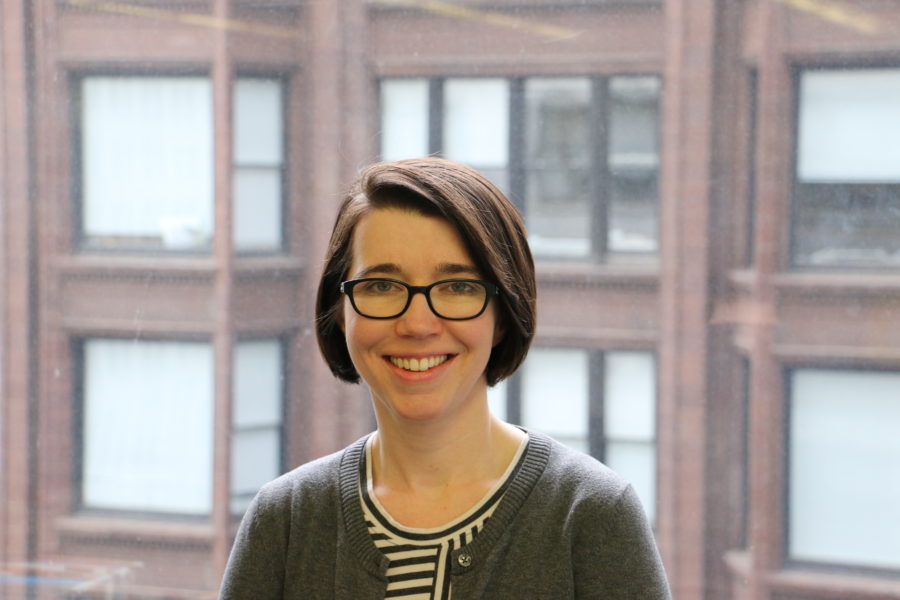The Legal Aid Society is expanding in DuPage!
“LAS helped me achieve my goals in life to provide better life for my family. It was such a relief to be authorized to live and work in this wonderful country.” – Lito, Human Trafficking Initiative client
The Legal Aid Society (LAS) is expanding into Metropolitan DuPage! Two newly created positions for LAS attorneys at DuPage Center will help build on the holistic nature of Metropolitan’s services throughout all 33 DuPage communities by providing legal services and offering comprehensive, trauma-informed advocacy for victims of human trafficking and immigrant victims of crime.
Alexandra Johnson and Kimberly Fay, Equal Justice Works Crime Victims Justice Corps Fellows with the Legal Aid Society, work out of our DuPage Center to expand LAS’s services, both into the suburbs to meet increasing demand for legal help across our DuPage communities, and into meeting their clients’ consistently evolving needs.
Alexandra Johnson represents victims and survivors of human trafficking. Many of her cases include assisting trafficking survivors in reporting to law enforcement and protecting their rights as victims, clearing criminal records that resulted from their trafficking, and seeking immigration relief for clients through T or U visas. (T visas allow certain victims of trafficking and immediate family to remain and work temporarily in the US, typically if they agree to assist law enforcement in testifying against their perpetrator. U visas are non-immigrant visas set aside for victims of crime.)
Another key element of Alexandra’s job involves educating local communities, primarily the western suburbs and beyond, on trafficking. She works to heighten awareness – how to spot signs of potential trafficking, how to help – among those who may come across a victim, such as healthcare providers and staff at shelters.
What does empowerment mean to you?
“I believe empowerment means providing opportunities for individuals to recognize their own strength and abilities in order to encourage them to take control of their future.”
Kimberly Fay represents immigrant victims of crime. She helps clients apply for immigration relief through VAWA (Violence Against Women Act) or U visas. She also assists clients with civil legal needs related to their victimization, including helping them obtain Orders of Protection or Civil No Contact Orders – both of which are mechanisms to ask the court to order an abuser to stay away from a victim, the victim’s family, and home. Kimberly also practices in crime victim rights advocacy, protecting the rights of the victim throughout any civil or criminal matter.
Additionally, Kimberly conducts outreach to immigrant communities and provides education on their rights and the resources available to them.
What does empowerment mean to you?
“I believe power is tied to knowledge and information. My role in helping to empower a client is to give them accurate information about their circumstances and encouraging them to choose the path that feels right to them. In many cases, clients have been in destructive, manipulative relationships where decisions have always been made for them. My job is to support them as they regain their power to choose for themselves.”
The Legal Aid Society’s Human Trafficking Initiative, begun in 2012, provides victim-centered, trauma-informed, and cost-free legal services to survivors of human trafficking from diverse communities in the Chicago metropolitan area. The types of cases our human trafficking attorneys take on vary almost as widely as the clients themselves; they provide support on legal issues that arise as a result of their exploitation. Learn more
LAS serves crime victims throughout Cook County and the surrounding suburbs in obtaining justice and rebuilding their lives, in one place. Clients are assigned to an attorney and/or a case worker who will guide them throughout the legal process and the process of recovery. This may include informing victims of their rights; counseling; advocacy for victims’ rights and safety planning; linkage to resources such as food, clothing, shelter, and financial assistance; and immigration relief for victims of human trafficking, domestic violence, and other crimes. Learn more


